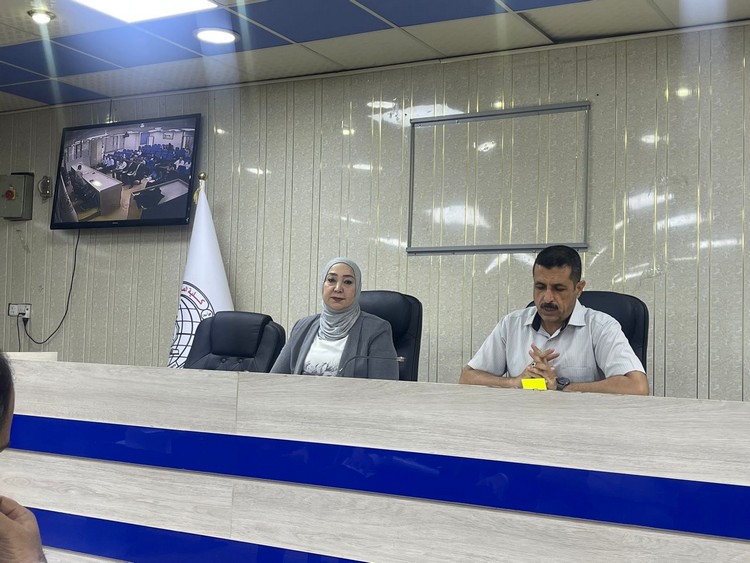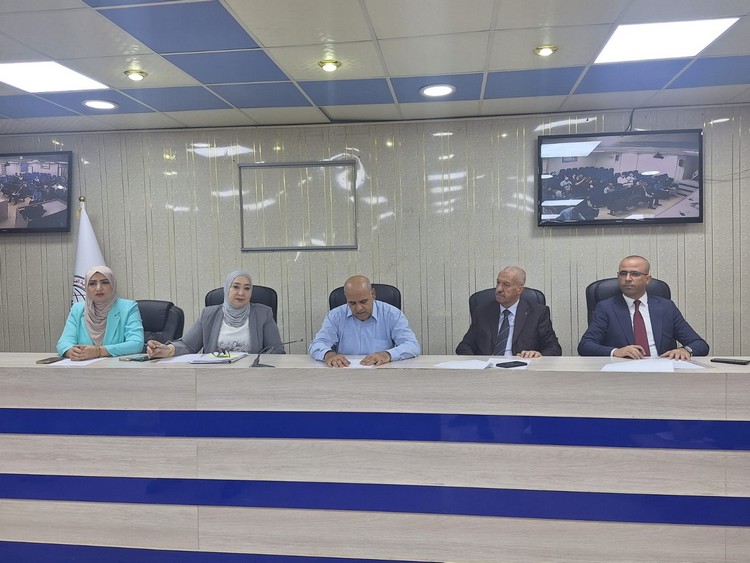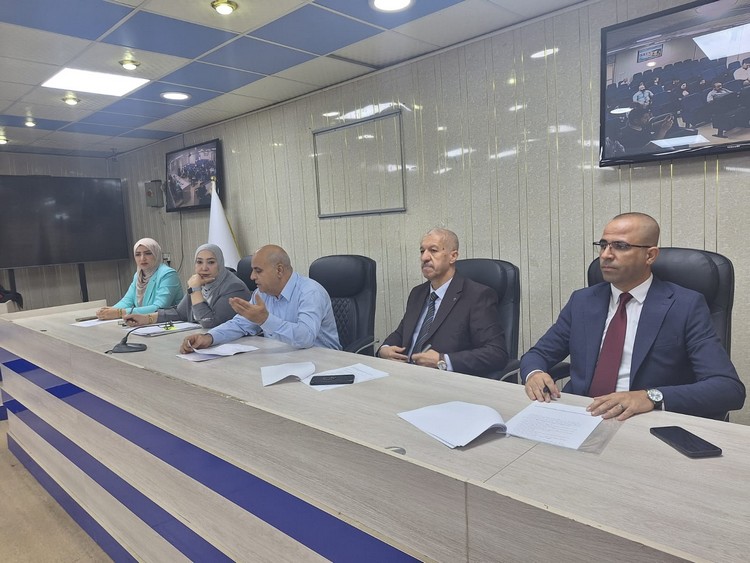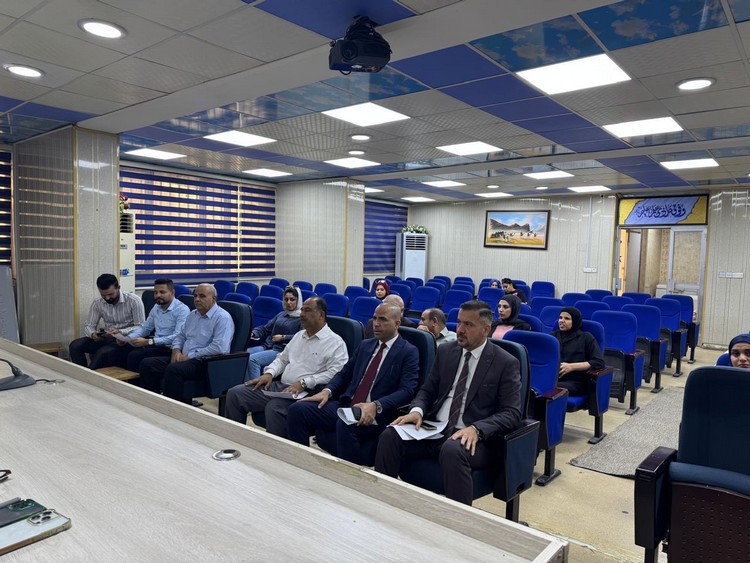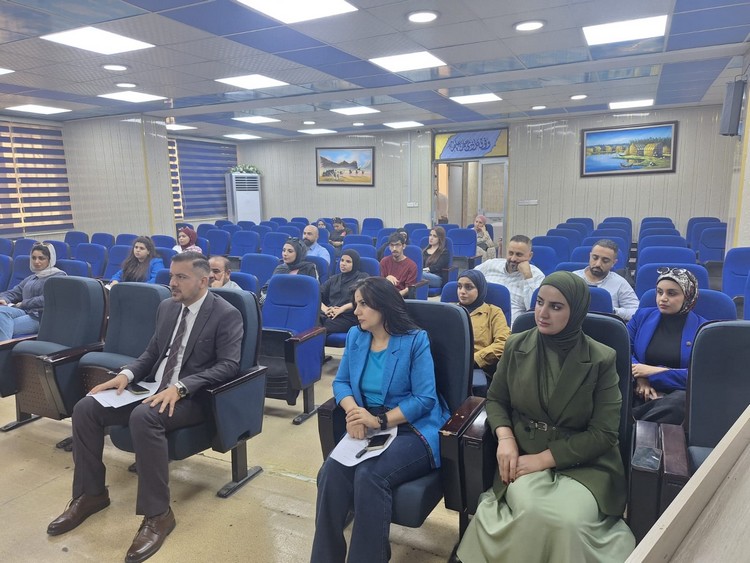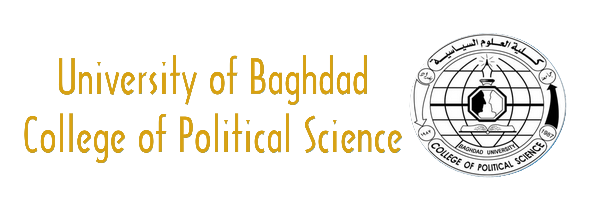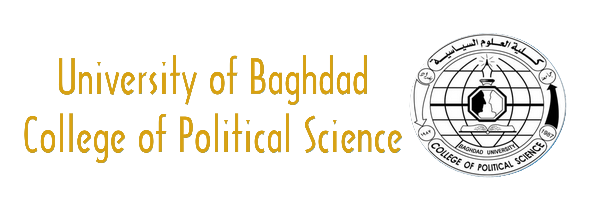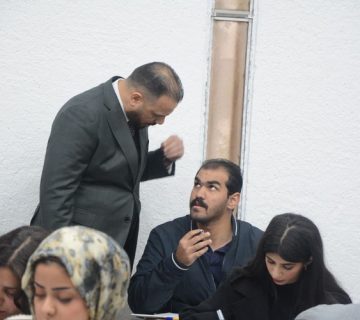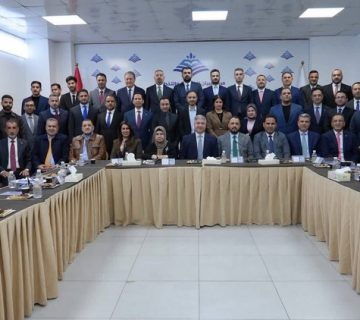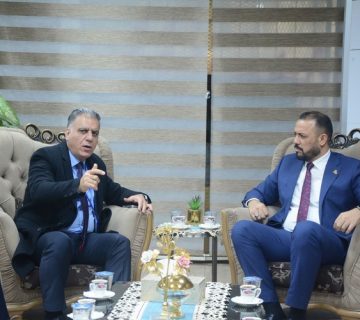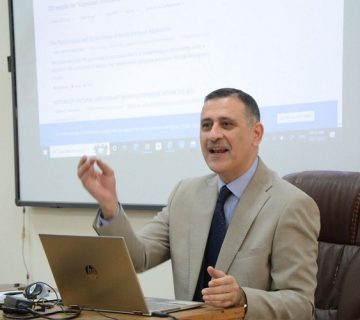The Department of International Studies at the College of Political Science – University of Baghdad, in cooperation with the Continuing Education Unit, held on Thursday, October 2, 2025, at Dr. Jihad Al-Hassani Hall, a workshop entitled “Iraq and the Geopolitical Dimension of Drug Proliferation in the Region,” chaired by Professor Dr. Faieq Hassen Jasem, Head of the Department of International Studies.
The workshop was attended by a distinguished group of specialized academics from within and outside the Department, including:
Asst. Prof. Dr. Awrad Mohammed Malik, Asst. Prof. Dr. Abdul Jabbar Ismael , Asst. Prof. Dr. Ahmed Hussein Shahil, Asst. Prof. Dr. Riyadh Abdul Ibrahim (Center for Strategic and International Studies), Asst. Dr. Venus Ghalib Kamel, Asst. Dr.Ali Hassan Howaidy , Asst. Dr. Ayat Naser Jaber , Asst. Dr. Ayad Malik AbdulMajeed, Asst.Lect. Shaymaa Mohammed Naser , and Asst.Lect. Balsam Ala’a Al-Din Hassan.
The workshop aimed to analyze the geopolitical and regional challenges associated with the spread of drugs and their repercussions on Iraq’s security and stability, considering its position as a link between the Middle East and Asia, and the resulting security, economic, and social challenges. The academic discussions addressed the factors that make Iraq a sensitive environment to the influence of regional and international smuggling networks and the impact of this phenomenon on societal and state security, with a focus on the interplay of political, geopolitical, and regional factors that either exacerbate or mitigate the issue. Strategic perspectives were also presented for formulating more effective national and regional policies to confront this challenge through a comprehensive approach encompassing security, political, social, and health dimensions.
The workshop falls within the framework of supporting the Sustainable Development Goals, particularly Goal 3 (Good Health and Well-being) and Goal 11 (Sustainable Cities and Communities).
The workshop concluded with a set of key recommendations, the most important of which are:
1. Strengthening regional cooperation to combat cross-border drug trafficking networks.
2. Developing national awareness programs to protect youth from the scourge of drugs.
3. Supporting security institutions with advanced technologies to detect and prevent smuggling operations.
4. Engaging civil society organizations in building a preventive culture that enhances Iraq’s stability and prosperity.
